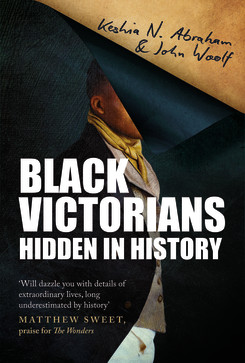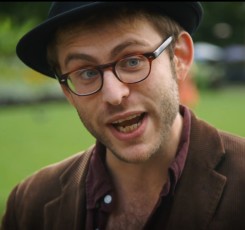Black Victorians:: A Hidden History
John Woolf

More often than not, wherever you find an influential white Victorian, in the shadows will be a Black Victorian whitewashed from the past. While Florence Nightingale was memorialised, Mary Seacole was hidden; while P.T. Barnum was revered, Pablo Fanque is hidden; while Thomas Edison was championed, Granville Woods is hidden; while Charles Dickens was studied, Sarah E. Farro is hidden. But we illuminate social, cultural, political, medical and gender histories by uncovering these stories of Black Victorians. In the process we meet entertainers and composers; suffragettes and reformers; Chartists and clergymen; soldiers and sailors; slaves and servants; lawyers and students; touring Zulus and African Choirs; and Black royals who won the affection of Queen Victoria.
By charting the history of Black Victorians, we penetrate the Victorian view of race. Often nasty, violent and racist, especially as the century progressed, we also discover other narratives that discombobulate our understanding of the era. Without doubt there was racism: social Darwinism, eugenics and imperial genocide. But there was also tolerance: a surprisingly liberal queen; a country that praised their open borders and morally defined themselves against American slavery. We show that Black lives were visible, present and influential; that Black Victorians were not temporary residents but people with established roots; that interracial marriages were common. We show how class could trump race. How paradoxes and ambivalence defined the Victorian view of race. In short, we discover that Victorian racism was not Black and white: rather, there were shades of grey, contradictions and complexities.
With an equal number of men and women—and a transgender woman too—we do not discount the role of Black Victorians with disabilities. We do not confine our exploration to one social group. In the process we make new discoveries, uncover new archives, and tell new stories that offer a revisionist account of the age. This book contributes to the national debate about our past, suggesting that while we condemn certain parts, we should celebrate others. Black Victorians is the place to start.
Book Details:
- Author: John Woolf
- On Submission
-
Rights Sold
- UK: Duckworth

John Woolf
John Woolf was born in 1988 and read History at Downing College, Cambridge, where he was awarded two scholarships before gaining two further scholarships at Goldsmiths, University of London, where he worked on his fully-funded PhD. His doctorate explored nineteenth-century ‘freak shows’ and was awarded in August 2016.
John has co-written a twelve-episode Audible book on Victorian History with Stephen Fry and Nick Baker of Testbed Productions. John also works as a freelance researcher, most recently with Channel 5 and What Larks Productions, and made his first onscreen appearanc...
More about John Woolf
Book Reviews
-
"
Meatily researched and illuminating... [brings] to swaggering life a group of Britons who have spent too long in the shadows."
Times